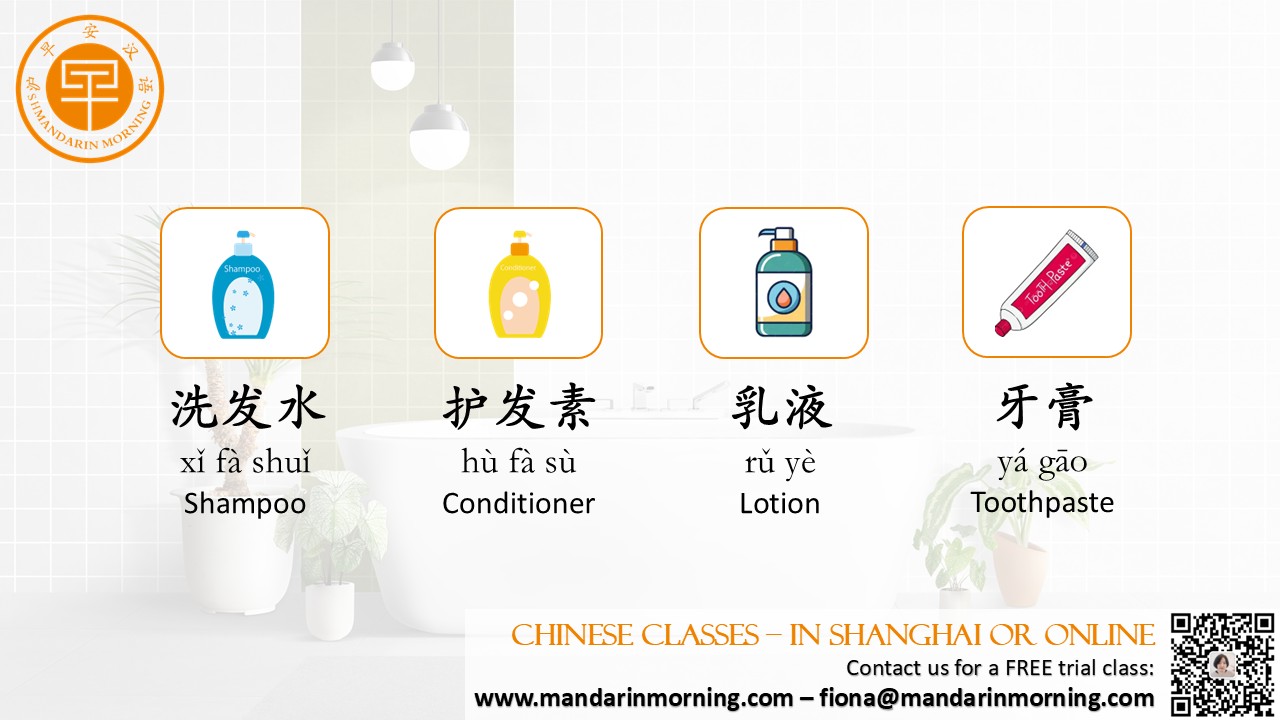| Have you ever stood in a Chinese supermarket, staring at rows of products and feeling completely lost? You’re not alone! For language learners, everyday items are hidden vocabulary gems. So today, let’s explore the Chinese names for common products you use every day. You’ll be shopping like a local in no time!  Let’s start in the shower. That bottle you use to wash your hair? It’s called 洗发水 (xǐfàshuǐ). Break it down: 洗 (xǐ) means "to wash," 发 (fà) means "hair," and 水 (shuǐ) is "water." Literally, "hair-washing-water" – makes perfect sense! Next to it, you might have 护发素 (hùfàsù), or conditioner. Here, 护 (hù) means "to protect" and 素 (sù) implies "essence," so it’s the product that protects your hair. After your shower, you probably reach for 乳液 (rǔyè), which is lotion or moisturizer. The character 乳 (rǔ) means "milk," giving you a sense of its creamy texture. For your face, you might use a specific 面霜 (miànshuāng), where 面 (miàn) is "face" and 霜 (shuāng) is "cream." Now, let’s brush our teeth! The toothpaste you squeeze onto your brush is 牙膏 (yágāo). 牙 (yá) is "tooth," and 膏 (gāo) is "paste" or "ointment." And the tool itself? Your 牙刷 (yáshuā), with 刷 (shuā) meaning "to brush." Understanding these names does more than just help you shop. It reveals how Chinese logically constructs words. You’re not just memorizing; you’re comprehending a way of thinking. The next time you pick up your 沐浴露 (mùyùlù) (shower gel – 沐浴 for "bath," 露 for "dew") or 洗手液 (xǐshǒuyè) (hand soap – 手 for "hand"), you’ll be practicing your Chinese without even opening a textbook. Ready to decode more of daily life? Our classes connect language to real-world experiences, making learning practical, fun, and effective. 加油 (Jiāyóu)! Let’s keep learning together. |